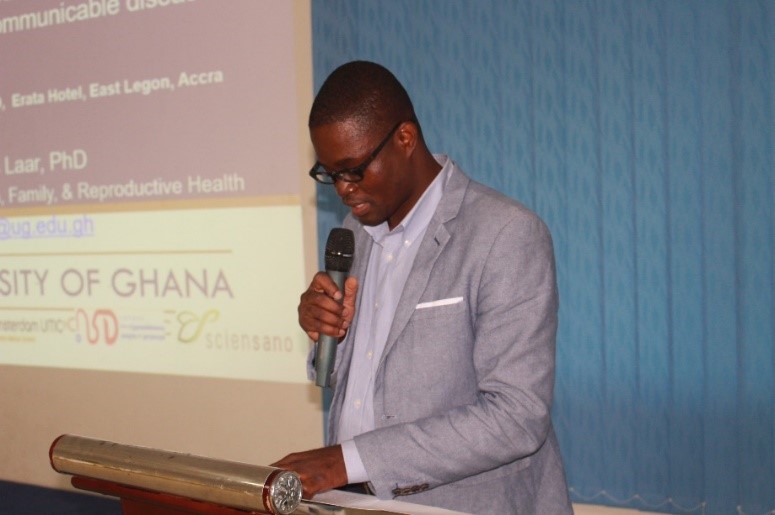Professor of Public Health Nutrition at the University of Ghana School of Public Health, Amos Laar has said nutrition transition in many African countries is driving demand for ultra-processed foods and contributing to the high and increasing prevalence of non-communicable diseases in the region.
Speaking at the “Conference on Food and Nutrition Security in Africa” hosted by the University of Greenwich Natural Resources Institute, United Kingdome, Prof. Laar argued that it is possible to make healthy food environment policies palatable in sub-Saharan Africa. He shared lessons from their work in Ghana.
He noted that amidst the looming threat of non-communicable diseases (NCDs) becoming the leading cause of death in Ghana by 2030, relevant authorities have been engaging various stakeholders to address the root causes of NCDs, which are largely driven by unhealthy food environments.
However, efforts to develop effective public health policies have been hindered by longstanding challenges such as data poverty and policy inertia.
To address these obstacles, the Healthier Diets for Healthy Lives (HD4HL) Project led by Prof. Laar emerged, aiming to provide the necessary evidence and advocacy to push for healthier food policies in Ghana.
The initiative is playing this role by generating context-relevant research, curating evidence, and making it accessible to policymakers, researchers, and civil society actors, the project tackled the problem of data poverty head-on. Moreover, through evidence-informed advocacy and scholar activism, they worked to overcome policy inertia and increase demand for policies promoting healthy food choices, including food-related health taxes.
Prof. Laar said efforts to address the challenges are expedient and should not be left to individual countries but the entire African continent. These effeorts he said include engagement with stakeholders, advocacy initiatives, and research projects which has led to the establishment of the Food Environments Research Network (FERN) Initiative launched in Ghana, aimed at stimulating robust food research and monitoring.
“When Kenya wins, Ghana wins. Success for one country is a success for the region. We don’t need a country focus, but a regional focus and multiple platforms that will synergise impacts,” He said.
DONATION TO SUPPORT THIS WEBSITE: 0599896099 +233599896099 Thank you for your contribution!
Related




















































